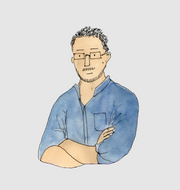Red Notice: A True Story of High Finance, Murder, and One Man’s Fight for Justice
Came across this book from Brad Feld’s post and I decided to give it a read. What a story! You’d think it’s fiction, but the whole thing appears to be 100% legit.
Lessons learned
- If you’re down with other people’s money, stay the course. They’ll respect you for trying — and you might just eventually make it out on top. Either way, you win.
- There’s always a way out. There were many occasions while reading the book that I thought “he’s done for”, but I look at the book and there’s still a bunch of pages left. He kept going.
Notable notes
My colleagues may all have had better résumés, but who else was the grandson of the leader of the Communist Party of the United States? No one else, that’s who. I applied to two schools, Harvard and Stanford, and told them my grandfather’s story. Harvard was quick to reject me, but amazingly, Stanford said yes. I was one of only three Bain employees accepted to Stanford that year.
Give yourself an advantage
The next morning I went through the phone directory and started cold-calling anyone who seemed relevant to see if they would be willing to discuss the Russian privatization program with me. I ended up seeing officials from the US embassy, some people at Ernst & Young, a junior Russian official at the privatization ministry, and a Stanford alum who worked at American Express, among others. Over four days, I arranged a total of thirty meetings, and from them I pieced together the full story of what was going on with the Russian privatization program.
Amazing initiative! jump in there and talk to everyone that would listen
We had met on a flight to Moscow the previous spring and he told me to look him up if I ever set up my own fund.
Meet people always..
“I don’t know, but you and Safra seem to have lost interest.”
Always have options..instead of waiting for a response from these guys..he went out and tried closing deals wjth others.
This was typical billionaire psychology. If I hadn’t had a competing offer, Safra wouldn’t have done anything. But since another deal was on the table, Safra couldn’t resist.
Instead of 150 million Russians sharing the spoils of mass privatization, Russia wound up with twenty-two oligarchs owning 39 percent of the economy and everyone else living in poverty.
Gennady Zyuganov? How the hell had Marc pulled that off?
This is how it’s done. fake it then make it. patch supply and demand with tape. He managed to get the Russian prime-minister to meet with a bunch of the world’s biggest CEO in Davos (where he wasn’t even invited!)
While tens of millions of Russians were desperate to make a living, hiring a good English-speaking employee in Moscow was almost impossible. Seventy years of communism had destroyed the work ethic of an entire nation. Millions of Russians had been sent to the gulags for showing the slightest hint of personal initiative.
It was as if I were the victim of a horrible car accident and every passerby was slowing down to see the carnage and the burning wreck of metal. Yet in my mind, I had only one choice: to stay. I had to make back all the money I had lost for my clients. I wasn’t going to leave Russia with my tail between my legs. That was simply not how I wanted to be remembered.
I’d stayed in Moscow for one simple reason: I was going to make my clients’ money back no matter what it took.
Our YouTube videos caught these corrupt Russian officials completely off guard, but the real coup de grâce that would destroy the equilibrium of the Russian authorities would be passing sanctions legislation in the United States.
Getting from helpless to this is shows phenomenal initiative, and an uwillingness to give up no matter what!
Direct LinkSince 2009, 13,195 bills had been proposed, and only 386 had made it out of committee and been voted in to law. We had completely defied the odds.
